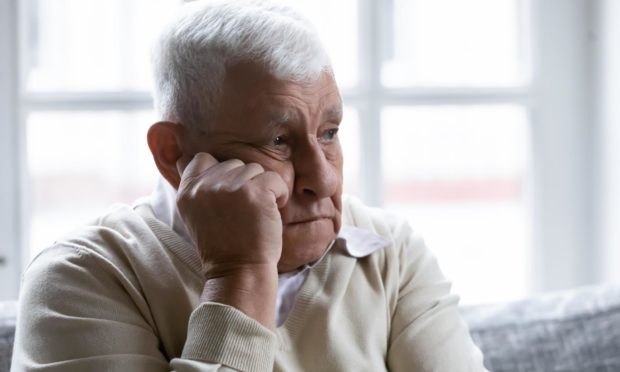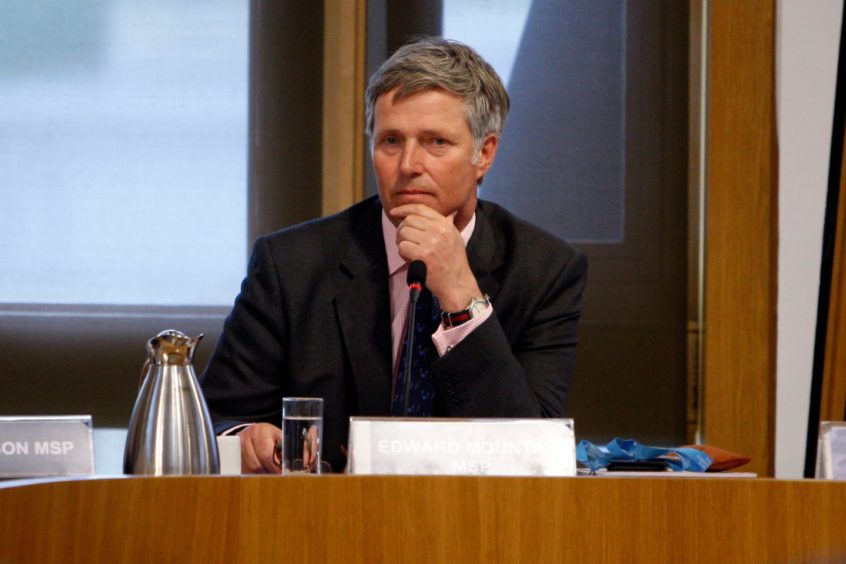A new campaign to combat loneliness amongst elderly people being cared for at home in the Highlands has been launched.
The “Time to Talk” campaign aims to change how NHS Highland commissions social care packages amid concern that the current arrangement can involve little more than a 20-minute daily visit from a carer.
Launched by Tory MSP Edward Mountain at a time when the Covid pandemic is exacerbating the problem of social isolation, the campaign has been backed by Highland Home Carers and Home Care (Scotland), two of the largest providers in the north.
Imagine being a lonely 80-year-old widow who has a single 20 minute visit from her personal carer each day. Her personal carer has time to get her client dressed and out of bed, but no time left to talk because of the design of NHS Highland’s care-at-home contracts. That needs to change and this is why I am launching the ‘Time to Talk’ campaign.”
Edward Mountain MSP
Mr Mountain, who represents the Highlands and islands, wants to extend care beyond meeting purely physical needs to include wellbeing.
That would involve changing the system from the long-standing “time and task” model, whereby social care at home is commissioned on an hourly rate.
Under that system, services are delivered in short time slots – typically 20 minutes, which mean carers have to prioritise physical care tasks with little time to talk to the elderly or explore their mental wellbeing.
The campaign’s three objectives
-
Combat loneliness of those receiving personal care-at-home
-
Change how NHS Highland commissions care-at-home packages
-
Extend care beyond purely physical needs to include wellbeing
Mr Mountain said: “Those receiving personal care in the Highlands are feeling more alone and more isolated than ever before.
“This issue existed prior to the pandemic, but the lockdown has made it more severe. As we head into winter we need to make serious changes to how care-at-home is delivered.
“Imagine being a lonely 80-year-old widow who has a single 20 minute visit from her personal carer each day. Her personal carer has time to get her client dressed and out of bed, but no time left to talk because of the design of NHS Highland’s care-at-home contracts. That needs to change and this is why I am launching the ‘Time to Talk’ campaign.
“In the Highlands, we need to see a move from ‘time and task’ care to a more personable approach, where carers have more time to talk and, therefore, can help to reduce the isolation of those they look after.”
Mr Mountain added: “For this to happen NHS Highland must change how it commissions care-at-home packages as the current system is too functional. We need to move towards a model of person-centred care-at-home in the Highlands.”
Support for campaign from care providers
Campbell Mair, managing director of Highland Home Carers, agreed the system should change.
Mr Mair said: “Over many years, the pressure to contain costs has driven forms of commissioning that significantly constrain the sector in delivering fair work to the social care workforce, and in maintaining quality and standards of service.
“Work is timetabled, task-focused, and people are not able to use their judgement to improve or adapt the support they provide. Yet this is a skilled and highly regulated workforce, expected in other ways to act in a professional manner in undertaking what is undeniably a highly responsible role.”
As the Highlands’ largest provider of Care at Home and Support services, we understand very clearly that high quality social care is vital for the quality of our society, and we welcome Edward Mountain’s `Time to Talk’ campaign as a significant step in the right direction.”
Campbell Mair of Highland Home Carers
“The current commissioning practice of hourly rate based non-committal agreements should end. Social care providers should be commissioned based on their level of skill, expertise, understanding, and application of the Fair Work Framework, and on costs based on the right numbers of staffing required and a satisfactory and fair income level for each member of staff.
Mr Mair added: “As the Highlands’ largest provider of Care at Home and Support services, we understand very clearly that high quality social care is vital for the quality of our society, and we welcome Edward Mountain’s `Time to Talk’ campaign as a significant step in the right direction.”
Mr Mair’s call for change came with an acknowledgement that providers were working “very well” with NHS Highland to explore better commissioning models that would benefit carers and the people they support.

Michelle Keir, business development and operations manager of Home Care (Scotland) Ltd said: “The pandemic has been challenging for everyone – especially those who have been isolated and distanced from their normal support network. It is so important that the home care sector and the staff who deliver the care are recognised as being integral parts of the communities they serve.
“We feel that Edward Mountain’s ‘Time to Talk’ campaign will be a significant step in the right direction to achieving better outcomes for all in the Highlands.”
NHS Highland chief executive Pam Dudek said the health board was looking at ways of changing the system.
Ms Dudek said: “Care at home staff are an often underappreciated but skilled workforce who provide often complex care in people’s own homes. Throughout the pandemic, they have been a lifeline for many people and we recognise their professional contribution to looking after people during this most challenging of times.
“NHS Highland has been actively looking at ways to allow us to move from function based personal care provision, based on the time we require to undertake care tasks, to a more outcomes based approach which is flexible to changing needs. We welcome Mr Mountain’s support of the direction we wish to follow.”
Ms Dudek added that the board was concerned with rising levels of loneliness and was working with partners to tackle isolation.

